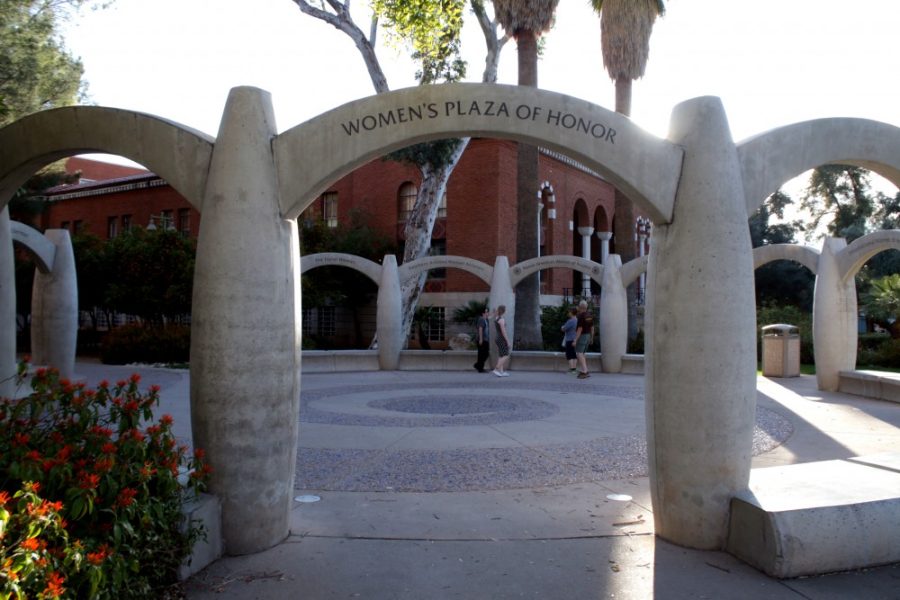What is gender? How does the gender one is assigned at birth affect his or her life? How has gender and sexuality played a role throughout history and in society today? These are just a handful of the big questions that students in the UA Department of Gender and Women’s Studies endeavor to answer.
The department is one of the most interdisciplinary on the campus. Professors come from all types of backgrounds and bring varying perspectives that give students a well-rounded view of gender and sexuality in the context of human rights, social justice and political issues.
“I believe that we need to look at gender and sexuality and their constructions to understand the world surrounding us,” said Jadwiga Pieper Mooney, head of the gender and women’s studies department. “I am a historian, but I am a gender historian also, who takes seriously that gender is a useful category of analysis and is a methodological tool that is indispensable.”
As a historian, Pieper Mooney specializes in Latin American studies and uses the analytical lenses of gender and sexuality to learn about and teach the history of this area. She has written about the violations of women’s rights in forced sterilization campaigns in Peru and North Carolina, and in Chilean society.
While Pieper Mooney’s focus is on women’s rights violations, every student and faculty member in the department specializes in their own interest and brings a new perspective.
Harrison Apple, a graduate student in gender and women’s studies, is focusing his research efforts on the queer community of Pittsburgh, Pennsylvania.
While working on his bachelor’s degree at Carnegie Mellon University, Apple became interested in the history of the underground queer society of Pittsburgh between the 1950s and the 1980s.
“I began an oral history and media archive project about gay and lesbian social classes and underground discos and bars,” Apple said.
Apple is working to create a more complete case study of his research through his graduate program at the UA and enjoys taking classes that allow him to think about his findings from different perspectives.
“It’s one of those majors that really helps people understand how it is that they learn and what they have learned and ways that it guides our thought,” Apple said. “It’s an amazing major for understanding how knowledge production happens.”
Because of its universality and applicability to many different fields, gender and women’s studies majors are able to follow a number of paths after graduation. Some, like Apple and Pieper Mooney, decide to remain in the academic part of the field and pursue master’s degrees, teach other students or continue their research.
Those who begin careers after completing their undergraduate degrees go into everything from the legal system to health care. Double majoring in gender and women’s studies along with other majors is common and encouraged. Gender and sexuality is ever present in our world and a background in the field can be applied to practically any sort of career or situation.
The gender and women’s studies major has also been building up a transgender studies program and is continuing to develop it for students who are interested in exploring the intricate and interesting history of the transgender community.
Educating the community is another large component of the gender and women’s studies department mission.
“We are trying to connect, especially the transgender initiative, to active community learning where we build connections, not only to community groups, but also to business interests, health interests, legal interests,” Mooney said.
The department has a strong connection to many local organizations, the efforts of which are centered around equality for all genders and sexualities. The Southwest Institute for Research on Women is a close collaborator with the department and encourages community engagement and continued research.
Gender and sexuality are non-negotiable parts of any society and the students and faculty of the Department of Gender and Women’s Studies endeavor to learn all they can about these aspects of life that many of us overlook, all while trying to make the world a more equal place for all.
Follow Victoria Pereira on Twitter.









